3 Best Pool Cue Cleaners Of The Year (Expert Reviewed)
Key Takeaways
- Clean the pool cue daily to protect it from dirt, oils, and chalk residue damage.
- When choosing a cleaner for the cue, consider factors such as type, ingredient, compatibility, and price. Discover the reasons below now!
- Below are three of the best cue cleaners, each with complete features that can help you choose the best one for your cue.
- Learn how to clean, maintain, and avoid common mistakes during cleaning with our detailed checklist right down now.
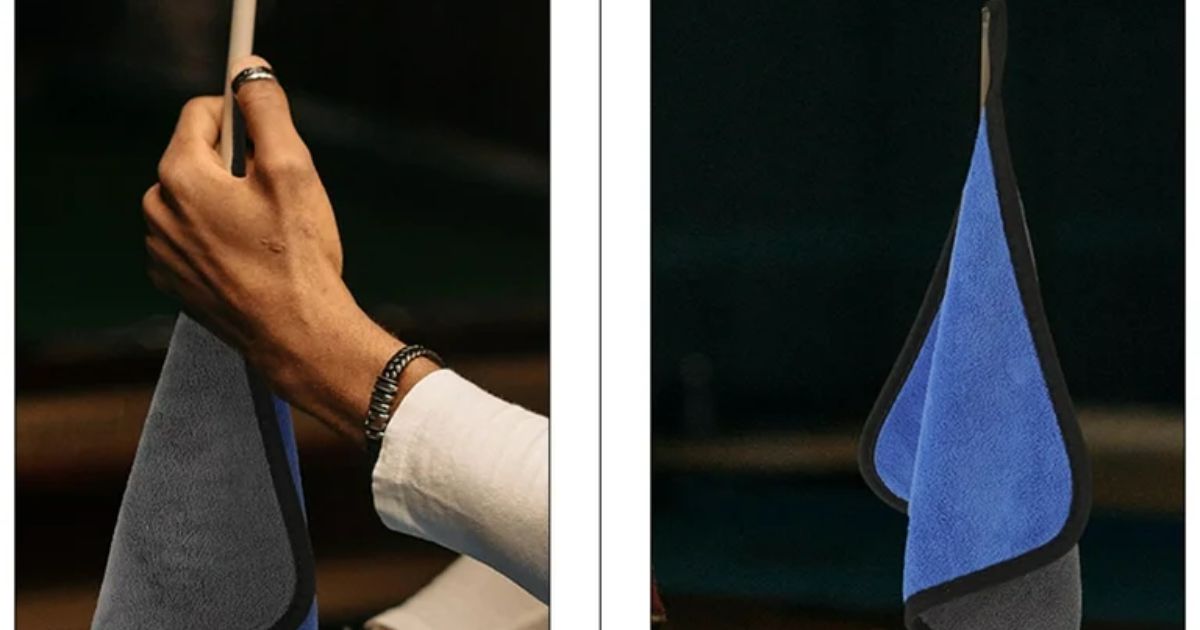
Why Clean Your Pool Cue?
Over time, your pool cue can collect dirt, oils, and chalk residue. These factors cause the cue weight balance to change, affecting your ability to control the cue ball accurately. Besides, the dirt can make the cue less smooth and damage it in the long run.
Regularly cleaned pool cues can prevent wear and tear, limit miscues in the game, and prolong the cue’s life. Also, a clean cue can help you give an accurate shot during gameplay, as it can produce smoother strokes and more precise control.
Additionally, when you keep cleaning the pool cue, it will look excellent and polished. Its appearance can create a strong impression in every competition and make you more confident.
5 Factors to Consider When Choosing a Pool Cue Cleaner
When choosing a pool cue cleaner, you should consider some factors below:
- Type of Cleaner: Decide on the kind of cleaner you prefer, such as wipes, sprays, or creams, based on your convenience and preference as long as it is suitable for your cue materials.
- Ingredients and Safety: Check the ingredients to ensure they are safe and do not contain harsh chemicals that could damage your cue or affect health risks.
- Compatibility with Cue Materials: Ensure the cleaner is compatible with your cue’s wood, fiberglass, carbon fiber, or another material.
- Ease of Use: Choose a cleaner that is simple to use and apply. It should come with instructions, so cleaning your cue is easy and not a hassle.
- Price and Value for Money: Consider the cleaner’s cost and effectiveness on cleaning to decide whether it is worth buying.
3 Best Pool Cue Cleaner Options
Below are the three best pool stick cleaner options for proper cue care.
1.Seybert’s Cue Silkleen 1 OZ.Dry
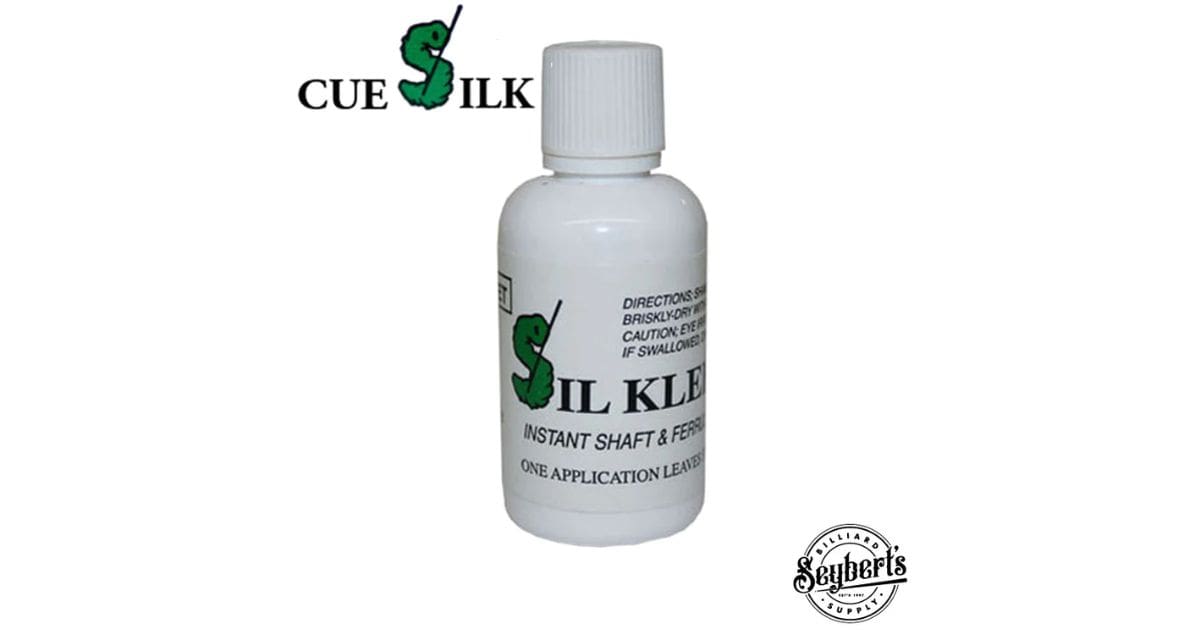
Cue Silk is a brand founded in 1992 as the original shaft conditioner. Now, it is sold in over 22 countries alongside Silkleen, an instant shaft cleaner that offers a choice of wet or dry cleaning methods.
Key features:
- Remove tough stains quickly to keep your shaft looking nice.
- Each 1 oz container provides multiple uses.
- Free from harsh substances that can harm your shaft.
Pros | Cons |
|
|
Price range: $6.95
2. PoolDawg Cue Doctor Shaft Cleaner
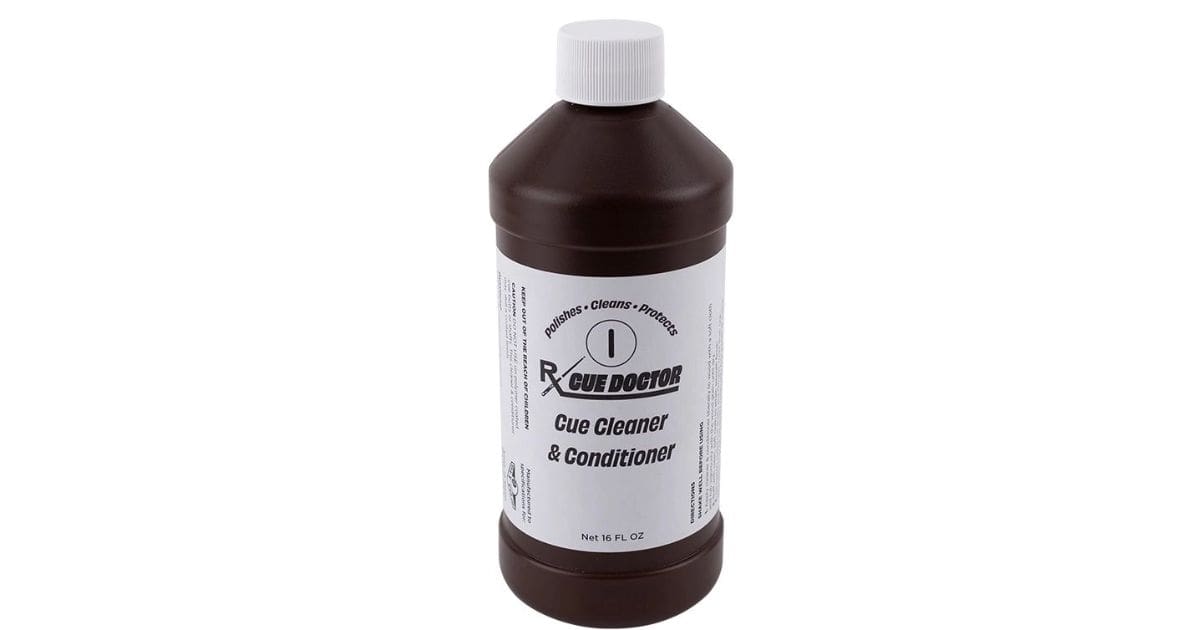
The Cue Doctor Shaft Cleaner is a unique formula that cleans and smooths cue shafts in one step. It’s unique because it doesn’t have harsh chemicals like alcohol or acetone, which can dry out the wood. Instead, it gently removes dirt and chalk while keeping the wood soft and shiny.
Key features
- Leave your cue shaft clean, smooth, and protected.
- Gently removes dirt and stains, extending the life of your cue.
- Ideal for all wooden cue shafts. Each bottle contains 16 fl. oz.
Pros | Cons |
|
|
Price range: $45.95
3. FCI Billiards Tiger Crystal Pool Cue Shaft Cleaner
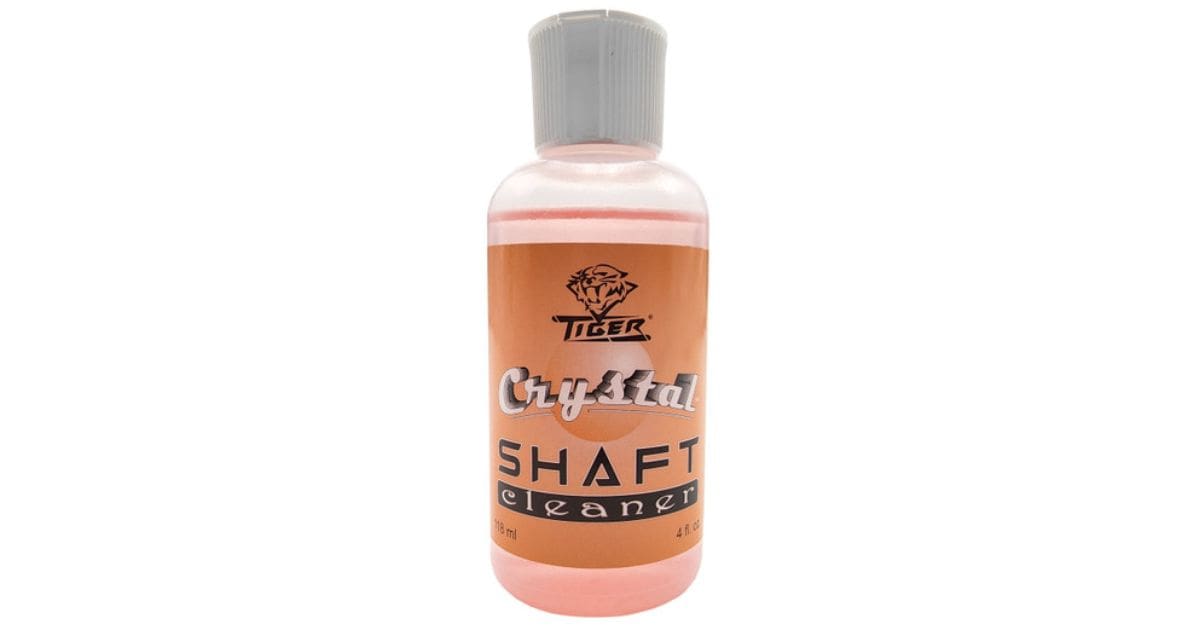
Tiger’s Crystal Shaft Cleaner is top-notch for cleaning your cue shaft. Apply it to a clean cloth, then hold firmly onto the turning shaft. Move gradually from one end to the other. This cleaner reaches into the shaft’s pores and removes dirt.
Key features: Remove dirt and buildup from the pool cue, ensuring a smooth and consistent performance.
| Pros | Cons |
|
|
Price range: $13
How to Properly Clean Your Pool Cue
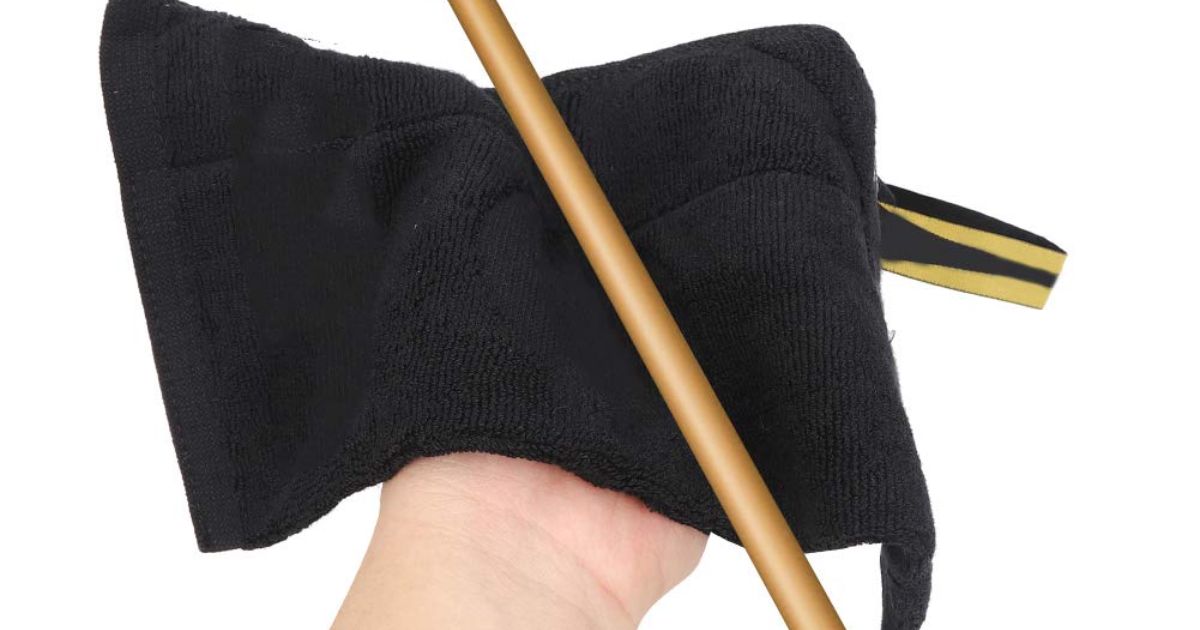
Follow these 6 steps to learn how to clean a pool cue:
Step 1: Gathering cleaning supplies
Before cleaning, let’s gather your cleaning supplies:
- Paper towel
- Soft cloth
- Pool cue cleaner
- Ultra-fine grit sandpaper or abrasive pad
- Cue conditioner or wax.
Step 2: Wipe the cue parts
- Use a soft cloth to wipe down the entire cue shaft to any dirt, oils, or residue (use the damp eraser or scouring pad to wipe if it is a wood cue)
- Twist the cue to clean the ferrule and the part of the shaft close to the tip.
Note: You should carefully wipe the shaft without wetting the tip.
Step 3: Clean with cue cleaner
- Apply a small pool cue cleaner to a clean section of cloth or clean a pool cue with alcohol.
- Gently wipe down the cue to remove any stubborn residue.
Step 4: Condition the cue
- Apply cue conditioner or wax onto a clean, soft cloth.
- Rub the conditioner or wax onto the cue by moving your cloth in a circle to keep the wood in good shape and protected.
Step 5: Wipe off excess conditioner
- Use a dry section of the cloth to remove any excess conditioner or wax from the cue.
Step 6: Allow the cue to dry
- Let the cue air dry for a few minutes before using it again.
Additional Maintenance Tips
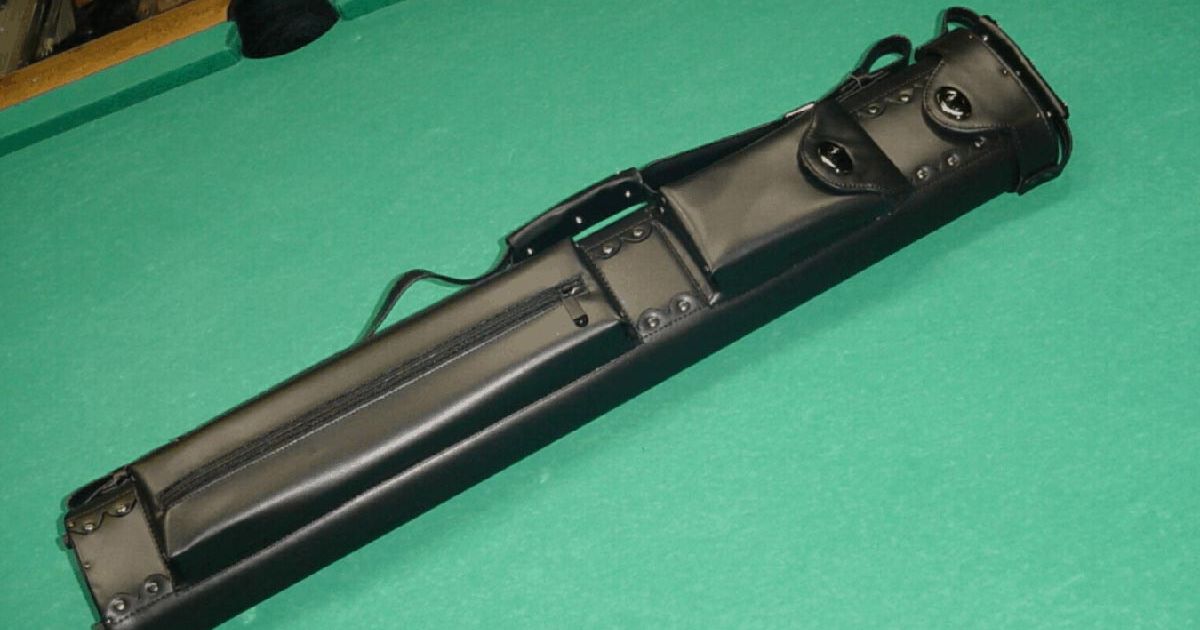
Learn about three maintenance tips for the cue below:
- Storage:
Keep your cue in a place with the same temperature and humidity. The best conditions are around 70 degrees F and 40-50% humidity. If the cue gets too hot, cold, or humid, it can warp or damage its finish and parts.
- Replacing cue tips and grips
To ensure consistent performance, replace the cue tip if worn or flattened. Similarly, replace the grip if it starts to deteriorate or lose traction.
- Using a protective case
Using a protective case is a good idea for maintaining pool cues. A protective case can protect the cue from bumps, scratches, and exposure to extreme temperatures, preserving its condition for longer.
4 Common Mistakes to Avoid When Cleaning Your Pool Cue
Here are some common mistakes you may make during the cleaning pool cue process. Let’s check it out and learn the way to avoid them:
Using Abrasive Materials
You may typically use what you have to clean pool cues, such as rough clothes, steel wool, or abrasive cleaners. These clothes can scratch or damage the cue’s surface.
Instead, use soft, non-abrasive cloths like microfiber or cue maintenance cleaning wipes.
Using Excessive Water
Using lots of water or soaking the cue can lead to warping, swelling, or damage to the cue’s wood or other materials.
A damp cloth or cue cleaning solution is best to clean the cue. Remember not to soak or put the cue in a high-moisture area.
Neglecting Cue Material Compatibility
Using unsuitable cue cleaning products can cause discoloration, deterioration, or damage.
So, it would be best to choose specific cleaning products for the cue’s material (e.g., wood, fiberglass, carbon fiber) to ensure compatibility and safe cleaning.
Applying Excessive Force
When cleaning, you may apply too much force, potentially damaging the cue’s shaft or ferrules.
It would help if you were gentle when cleaning to avoid excessive force on the cue.

Dave Pearson
Dave Pearson, the world's leading pool entertainer, is renowned globally as the ultimate exhibition player.
Boasting 20 world records endorsed by the prestigious Guinness Book of World Records, Dave established a legendary history in the sport industry.
